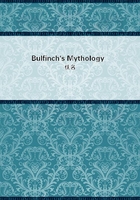
第47章
"'Twas in his carriage the sublime Sir Richard Blackmore used to rhyme, And, if the wits don't do him wrong, 'Twixt death and epics passed his time, Scribbling and killing all day long;Like Phoebus in his car at ease, Now warbling forth a lofty song, Now murdering the young Niobes."Sir Richard Blackmore was a physician, and at the same time a very prolific and very tasteless poet, whose works are now forgotten, unless when recalled to mind by some wit like Moore for the sake of a joke.
1The Graeae were three sisters who were gray-haired from their birth, whence their name. The Gorgons were monstrous females with huge teeth like those of swine, brazen claws, and snaky hair. They also were three in number, two of them immortal, but the other, Medusa, mortal. None of these beings make much figure in mythology except Medusa, the Gorgon, whose story we shall next advert to. We mention them chiefly to introduce an ingenious theory of some modern writers, namely, that the Gorgons and Graeae were only personifications of the terrors of the sea, the former denoting the STRONG billows of the wide open main, and the latter the WHITE-crested waves that dash against the rocks of the coast. Their names in Greek signify the above epithets.
PERSEUS AND MEDUSA
Acrisius was the king who ruled in Argos. To him had an oracle declared that he should be slain by the child of his daughter Danae. Therefore the cruel king, thinking it better that Danae should have no children than that he should be slain, ordered a tower of brass to be made, and in this tower he confined his daughter away from all men.
But who can withstand Jupiter? He saw Danae, loved her, and changing his form to a shower of gold, he shone into the apartment of the captive girl.
Perseus was the child of Jupiter and Danae. Acrisius, finding that his precautions had come to nought, and yet hardly daring to kill his own daughter and her young child, placed them both in a chest and sent the chest floating on the sea. It floated away and was finally entangled in the net of Dicte, a fisherman in the island of Seriphus. He brought them to his house and treated them kindly, and in the house of Dicte, Perseus grew up. When Perseus was grown up, Polydectes, king of that country, wishing to send Perseus to his death, bade him go in quest of the head of Medusa. Medusa had once been a beautiful maiden, whose hair was her chief glory, but as she dared to vie in beauty with Minerva, the goddess deprived her of her charms and changed her beautiful ringlets into hissing serpents. She became a cruel monster of so frightful an aspect that no living thing could behold her without being turned into stone. All around the cavern where she dwelt might be seen the stony figures of men and beasts which had chanced to catch a glimpse of her and had been petrified with the sight. Minerva and Mercury aided Perseus. From Minerva, Perseus borrowed her shield, and from Mercury the winged shoes and the harpe or crooked sword. After having flown all over the earth Perseus espied in the bright shield the image of Medusa and her two immortal sisters. Flying down carefully he cut at her with his harpe and severed her head. Putting the trophy in his pouch he flew away just as the two immortal sisters were awakened by the hissings of their snaky locks.
PERSEUS AND ATLAS
After the slaughter of Medusa, Perseus, bearing with him the head of the Gorgon, flew far and wide, over land and sea. As night came on, he reached the western limit of the earth, where the sun goes down. Here he would gladly have rested till morning. It was the realm of King Atlas, whose bulk surpassed that of all other men. He was rich in flocks and herds and had no neighbor or rival to dispute his state. But his chief pride was in his gardens, whose fruit was of gold, hanging from golden branches, half hid with golden leaves. Perseus said to him, "I come as a guest. If you honor illustrious descent, I claim Jupiter for my father; if mighty deeds, I plead the conquest of the Gorgon. Iseek rest and food." But Atlas remembered that an ancient prophecy had warned him that a son of Jove should one day rob him of his golden apples. So he answered, "Begone! Or neither your false claims of glory nor of parentage shall protect you;" and he attempted to thrust him out. Perseus, finding the giant too strong for him, said, "Since you value my friendship so little, deign to accept a present;" and turning his face away, he held up the Gorgon's head. Atlas, with all his bulk, was changed into stone. His beard and hair became forests, his arms and shoulders cliffs, his head a summit, and his bones rocks. Each part increased in bulk till he became a mountain, and (such was the pleasure of the gods) heaven with all its stars rests upon his shoulders.
And all in vain was Atlas turned to a mountain, for the oracle did not mean Perseus, but the hero Hercules, who should come long afterwards to get the golden apples for his cousin Eurystheus.